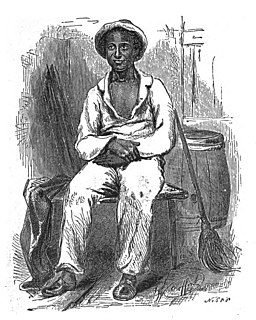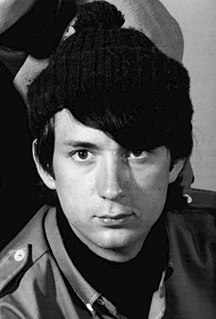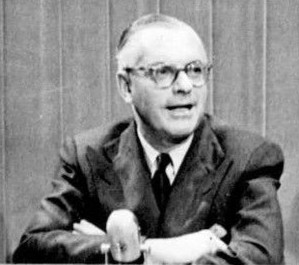A Quote by Richard Paul Evans
The most difficult of decisions are often not the ones in which we cannot determine the correct course; rather the ones in which we are certain of the path but fear the journey.
Related Quotes
Situations in life often permit no delay; and when we cannot determine the course which is certainly best, we must follow the one which is probably the best. This frame of mind freed me also from the repentance and remorse commonly felt by those vacillating individuals who are always seeking as worthwhile things which they later judge to be bad.
Time, which measures everything in our idea, and is often deficient to our schemes, is to nature endless and as nothing; it cannot limit that by which alone it had existence; and as the natural course of time, which to us seems infinite, cannot be bounded by any operation that may have an end, the progress of things upon this globe, that is, the course of nature, cannot be limited by time, which must proceed in a continual succession.
Correct is to recognize what diseases are and whence they come; which are long and which are short; which are mortal and which are not; which are in the process of changing into others; which are increasing and which are diminishing; which are major and which are minor; to treat the diseases that can be treated, but to recognize the ones that cannot be, and to know why they cannot be; by treating patients with the former, to give them the benefit of treatment as far as it is possible.
I do not mean to say that such institutions act unilaterally on psychic life, or that they determine certain psychic outcomes. Rather, they exploit forms of fear and insecurity that are there for any population - no political organisation of life could ever fully do away with fear and insecurity; but some work to intensify, accelerate, and make more acute forms of fear, and to provide ideological focus for such intensified fears, at which point critical thinking has a fierce rival. The critical analysis that shows precisely how those forms of fear are promulgated, and for what purpose.
Decisions are constantly before us. To make them wisely, courage is needed-the courage to say no, the courage to say yes. Decisions do determine destiny. I plead with you to make a determination right here, right now, not to deviate from the path which will lead to our goal: eternal life with our Father in Heaven.
The collaboration which sometimes follows is seldom based on good will: usually on desire, rage, fear, pity or longing. The modern illusion concerning painting (which post-modernism has done nothing to correct) is that the artist is the creator. Rather he is a reciever. What seems like creaton is the act of giving form to what he has recieved.
In your deliberations, when seeking to determine the military conditions, let them be made the basis of a comparison, in this wise: which of the two generals has the most ability? on which side is Discipline most rigorously enforced? which army is stronger? on which side are the officers and men more highly trained? in which army is there the greater constancy both in reward and punishment?


































